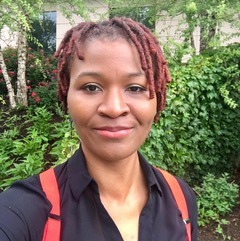Have you ever conducted extensive research and reached a definitive conclusion? If so, then you know it’s easy to be confident in your own theories and argue them convincingly to all who oppose. Sometimes, however, personally-researched conclusions are proven incorrect in ways that could have far-reaching consequences—especially when they’re conclusions about yourself.
When I connected with the gifted community online, I was sure I was gifted even though I hadn’t been formally tested. I was just as confident that I was autistic and suffered from dyscalculia. I had read piles of books, blogs, articles, and lectures about these topics, so regarded these conclusions as immutable facts.
You might ask, why didn’t I just get a professional evaluation? Well, I was inherently distrustful of a therapist’s ability to accurately diagnose me because of my previous experience. Fifteen years ago, I went to a therapist to address my concerns about anxiety, relational problems, suicide ideation, and depression and was swiftly diagnosed with ADHD. No formal testing was completed. The salient reasons were my rapid speech, many interests, and high energy levels. I left not feeling heard and with a diagnosis that didn’t quite address my concerns. Nevertheless, I accepted the prescribed stimulant medications—and after 13 years, realized I’d become addicted to them. In my case, ADHD medication increased my anxiety and pushed my naturally strong interests into obsessive tendencies. I made several attempts to reduce or stop the medication without a doctor’s assistance; this led to severe withdrawal symptoms, including severe depression and even psychosis. My career was taking a hit, so I reluctantly went back on the meds. But I felt lost. I thought I could never trust a therapist again. How could they claim to know me better than I knew myself?
*
Of all the conclusions I’d made about myself in my research, determining that I was gifted was the easiest. I had been identified as gifted as a child and recommended for grade acceleration, but my parents chose not to pursue this option. Years later, a friend prompted me to revisit the concept of giftedness through an adult lens to see if that would be helpful. So I read every article and resource available about giftedness, asynchrony, and positive disintegration. The descriptions I read of giftedness fit my life perfectly.

Even though most skills came easily to me, math had always been a struggle. In math classes, my eyes glazed over and I became anxious whenever I didn’t understand a concept. Failing to grasp a concept immediately was otherwise wholly foreign to me, so I didn’t know what to do when it happened; I simply stayed silent and didn’t ask for the teacher’s help. So it should come as no surprise that I became an adult who was overwhelmed with anxiety when I had to calculate my tip at a restaurant and flailed if asked how much shoes would cost if they were 30% off.
Then I came across something called dyscalculia, a learning disability that manifests as difficulty with basic math concepts and trouble recognizing math symbols. Since it seemed to explain my past, I readily accepted this label—and began thinking of myself as a hopeless dyascalculic with no hope for improvement.
Historically, my conclusions had always been backed by research. I’ve always prided myself on being a good critical thinker. In my day job as a management consultant, it was my job to analyze available data to identify problems, determine root causes, and recommend solutions. I had enjoyed tremendous success in doing so. Why would this be any different?
So I confidently pressed forward with my unverified conclusions. Next, I self-diagnosed as autistic—once again after reading dozens of articles, blogs, papers, with the results of a popular free on-line autism screening tool to top it off. I was convinced that autism was the only explanation for my life experiences. Most compelling was what I learned from a presentation called “Could It Be Aspergers?” by Dr. Tony Atwood, an autism expert. I listened intently and feverishly took notes.

“See, I don’t make eye contact during conversation, and I struggle socially,” I explained to the friends who were supporting my quest to find an explanation for my struggles and behaviors.
In social situations, I felt perpetually awkward, like there was a script for life and everyone but me had gotten a copy. I developed what I called personas, tailored personalities intended for interacting with certain groups. These seemed to me to align with the behavior called mirroring that is common in autism.
Moreover, I engaged in repetitive behaviors. One day, I discovered a beautiful commercial for Newfoundland and Labrador tourism on You Tube. I love all things Canadian as well as coastal towns, so I watched this two-minute commercial on loop at least fifteen times in a row. Repetition was soothing, especially when I was under stress. This, surely, indicated that I was autistic.
I felt perpetually awkward, like there was a script for life and everyone but me had gotten a copy. Repetition was soothing, especially when I was under stress. This, surely, indicated that I was autistic.
So that was my set of well-researched answers: I was a gifted autistic with dyscalculia. Armed with my newfound self-understanding, I took the results of my extensive research project out into the world.
I went to gifted meetups, posted in dyscalculia forums, and joined autism support groups. I inundated my friends on social media with articles and research supporting my conclusions. I congratulated myself for “solving the puzzle” that was my life, then carried on. Through frequent discussions in these groups, my conclusions were continuously affirmed. I happily took a break from diligent researching, put the blogs and articles aside to enjoy connecting with life minded souls.
But something was dreadfully wrong.
I live in a laid-back sailing town and have a wonderful group of supportive friends. Most of the time, I was a positive, outgoing, and social person. This was a place I should have been able to thrive. But there were other times—still, even after all my research—that I couldn’t find the motivation to get dressed, to leave the house, or even to prepare food. Periodically, I felt life wasn’t worth living. I wanted to die.
Each maladjusted behavior and wave of sadness sent me back to my research. And sure enough, I found a way to fit every experience to my self-diagnosis, complete with citations.
Social isolation? Oh, that’s because I’m autistic! Masking makes me burn out socially. It also impacts my executive function and that’s why I can’t cook for myself. Sometimes I just need to stay home for a few days. I read about it in an article….
Suicide ideation? No worries there. I read in a reputable journal that many gifted people experience existential depression. I’m not actually going to hurt myself; I read a journal article about this, so it will be fine.
My friends, however, were not convinced. My inconsistent and sometimes alarming behavior wasn’t aligning with the smart, vibrant, outgoing woman they knew me to be. And it wasn’t fully explained by my reasoning.

Then I had a turning point.
I had what appeared to be a fabulous day. I woke early to practice yoga outdoors at a local farm. During the afternoon, I shopped for fresh foods at the local Amish market, and in the evening, I went to one of my favorite places, the local performing arts theatre.
After the performance, I came home, dumped my yoga mat and the playbill on the floor…
…and burst into tears.
I was overwhelmed with inexplicable despair. I contemplated suicide for the rest of the evening, then cried myself to sleep. My brain felt like a malfunctioning computer that had crashed mid-program and needed a sudden reboot.
After surviving this episode, I knew something was wrong. Something that could put my life at risk. What had I overlooked? It was then that I realized it was no longer acceptable to speculate alone, spending hours highlighting articles I had printed from psychology journals.
I realized that I needed to talk to a therapist to get a professional evaluation; my only condition was that I find an excellent one. I researched, phone-screened, and emailed no less than a dozen therapists. Finally, I chose a reputable neuropsychologist with thirty years of experience who insisted on thorough battery of psychological testing before working with any client.
I arrived at my first appointment prepared with notes and bullet points. I explained that I was probably gifted; had an incorrect ADHD diagnosis; was autistic and dyscalculic; and needed her to complete the testing to prove me right. Even at that point, it still seemed to me that my research had pinpointed the only possible explanations for my poor understanding of mathematical concepts, notable struggles with socializing, repetitive behaviors, crippling anxiety, and frequent feelings of emotional detachment.
I arrived at my first appointment prepared with notes and bullet points. I explained that I was probably gifted; had an incorrect ADHD diagnosis; was autistic and dyscalculic; and needed her to complete the testing to prove me right. Even at that point, it still seemed to me that my research had pinpointed the only possible explanations for my struggles.
Over several visits, I completed my extensive psychological testing and interviews. On debriefing day, I was floored by the results.
I was correct about giftedness, though I was surprised to see several scores within the segment of the Bell curve labeled “superior.” I was also correct that ADHD had been a misdiagnosis. My screening had detected no signs of ADHD.
The professional diagnosis? Severe clinical depression.
I couldn’t believe it. That can’t be all! I reflected on the hours, the articles, the journals, the many, many group discussions! “And what about autism?!” I pressed.
My doctor shook her head, slightly baffled. “No, no autism.”
My shoulders dropped. I was mortified. It was impossible for me to be this wrong; there had to be some mistake. Exasperated—even disappointed—I pressed again.
“But all of those traits…my experiences, the behaviors!?”
“No, I don’t believe you’re autistic,” she said firmly, with a slight smile.
Flashing back through what felt like an eternity of math comprehension difficulties—including stumbling through the numbers-oriented test in my psychological battery—I redirected. “I do have dyscalculia though, right?
Another slight head-shake. “After reviewing your comprehensive test results…you are better with numbers than you think.”
As additional sessions with her would reveal, it turned out I had several important blind spots that I never could have identified on my own. Did you know that autism and C-PTSD from trauma can look almost identical? And did you know that dyscalculia and severe math anxiety could manifest similarly? Yeah, I didn’t either, and I never would have gotten an accurate diagnosis without a professional evaluation that ensured I was receiving treatment for the proper problem.
It’s true that gifted people sometimes experience existential depression in which they question the meaning and purpose of life. In my case, however, my prolonged severe depression was triggered by trauma.
As for dyscalculia, upon further examination, it turns out that I recognize math symbols and am capable of learning math concepts, but a lifetime of hiding my math deficiencies grew into an overwhelming math anxiety that prevented me from engaging with math like I would any other topic. It turns out that the “damage” isn’t permanent. I’m being tutored on a few foundational math concepts that I missed, such as the base 10 system, fractions, and percentages. So far, I’m a decent student and am making progress. Math is a lot less scary these days.
And my alleged autism? Many of the traits I was mistaking for autism are also common in C-PTSD, which can cause notable social difficulties, social anxiety, and a tendency to withdraw and self-isolate. These traits quickly diminished once I was no longer able to lean on the excuse of autism for my perceived social deficiencies; instead, I now had to face that some of my maladaptive social behaviors needed to be—and could be—addressed and healed. This process, moreover, was much easier when guided by a therapist than it would have been for me to find solutions on my own.
Many of the traits I was mistaking for autism are also common in C-PTSD. These traits quickly diminished once I was no longer able to lean on the excuse of autism; instead, I now had to face that some of my maladaptive social behaviors needed to be—and could be—addressed and healed.
Trusting a professional diagnosis and receiving medication that worked for me changed my life. Working through my specific issues in a structured format with a trusted counselor turned out to be beneficial in ways I would never have realized was possible after my first experience with therapy.
Finally liberated from suicide ideation, I remarked to my therapist one day, “This is strange. I feel great, and I don’t feel like I’m on drugs.” Her response was, “That’s how you know you’re on the right drug.”

Now I no longer spend days sobbing on my sofa, battling bouts of suicide ideation and otherwise missing out on my wonderful life. I also don’t devote hours to “research” and finding new ways to pathologize myself. The new things I learned about myself were impossible to learn within my vacuum of isolation, because when we self-diagnose, we can’t account for our own biases and oversights. That’s why, though it may feel liberating at first, self-diagnosis can be harmful. It can cause you to see yourself through a distorted lens that further complicates your life, even as it fails to offer you the support you need. When I self-diagnosed, I was wrong, and the implications were huge.




